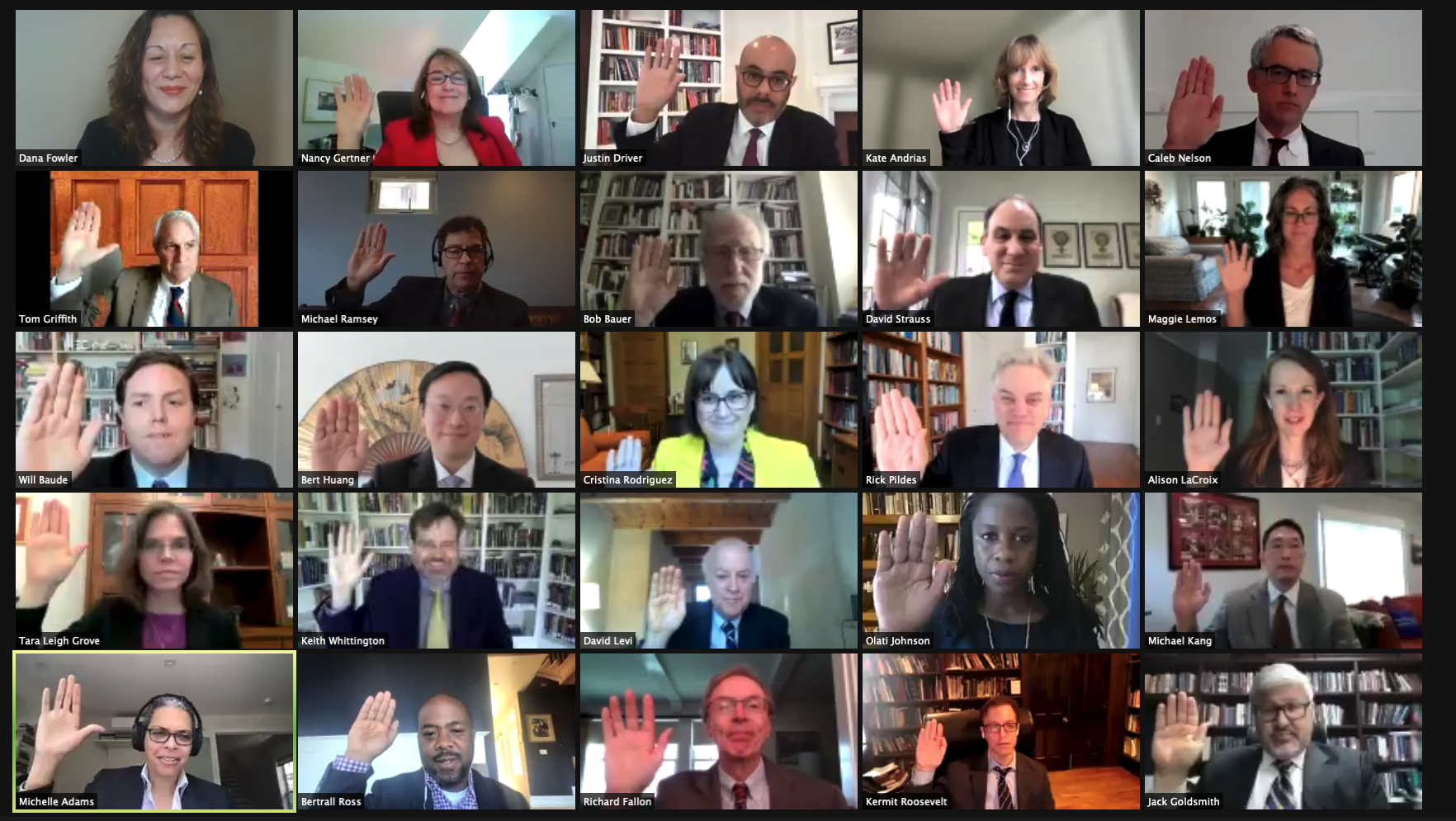First SCOTUS Reform Commission Meeting a "Major Milestone"
 Though the first meeting of President Biden’s Supreme Court Reform Commission today was more housekeeping than iconoclasm — which likely disappointed some folks with large, social media-optimized megaphones — the fact that a bipartisan, presidentially approved body is discussing ways to modernize the high court is a major milestone.
Though the first meeting of President Biden’s Supreme Court Reform Commission today was more housekeeping than iconoclasm — which likely disappointed some folks with large, social media-optimized megaphones — the fact that a bipartisan, presidentially approved body is discussing ways to modernize the high court is a major milestone.
At least two of the Commission’s five subcommittees will have an eye toward FTC’s “fixes“: one, per Commissioner Olatunde Johnson, will study term limits proposals, and another, per Commissioner Bert Huang, will study “general transparency and ethics” proposals.
Even with the Commission not charged with making recommendations, what it chooses to focus on will be carefully watched by organizations and lawmakers seeking reform.
“As the Commission’s work begins, a wide majority of Americans already believes that significant changes must occur at the Supreme Court to preserve its legitimacy in an increasingly polarized world,” FTC executive director Gabe Roth said.
“Americans want a Court that’s independent of the day’s political winds, that follows basic measures of transparency and whose justices serve shorter tenures. The Commission has a unique opportunity to study and advance these and other reforms, and I hope they don’t squander it,” Roth added.
As often noted by court-watchers, three things can happen here: the judiciary can modernize itself; Congress can pass laws to modernize the judiciary (see new “Sorry for Being Reasonable” essay); or the judiciary can remain embarrassingly opaque and behind the times.
In the coming weeks, Fix the Court will seek to testify before the Commission to lay out reform proposals that have broad bipartisan support and to provide a path for implementation. (FTC generally has no preference as to whether these proposals are implemented by Congress or the courts themselves, but given years of judicial inaction and clear Article I authority, Congress — cheered on by this Commission, one hopes — would seem to be the most apt to act.)
Among these proposals will be:
— 18-year term limits for future justices, with a move to senior status after a justice’s 18th year
— Continued livestreaming of Supreme Court oral arguments
— A Code of Conduct for Supreme Court Justices
— Stronger anti-harassment, anti-discrimination and anti-retaliation protections for judiciary staff
— A requirement that judges and justices follow the same disclosure, travel, gift and stock rules as members of Congress
One more thing:
Regarding the last bullet point, and timed to coincide with May 17 deadline for 3,000 judiciary officials — judges, justices and top staff — to file their annual financial disclosures, FTC has published two items to assist the Commission, lawmakers and other interested parties in their reform efforts: “Comparing the Federal Lawmakers’ and Judges’ Disparate Travel Disclosures” (link) and “Do Nancy Pelosi and Kevin McCarthy File Timely, Detailed, Online Disclosures? Of Course They Do” (link).
FTC expects to receive the justices’ 2020 disclosures the week of June 14. The 2019 disclosures for some 1,300 non-SCOTUS active and senior judges have yet to be released. FTC has no read on the timing for the release of those or of the 2020 non-SCOTUS disclosures.